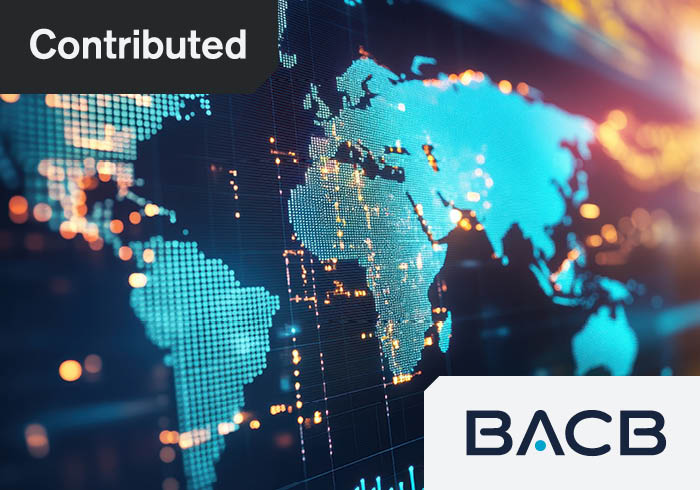The past few years have seen an increasing focus on how the global trading landscape can manage geopolitical shocks. For British Arab Commercial Bank (BACB), operating in politically and economically volatile markets is not a deviation from the norm, it is the foundation of our business, writes Damian Austin, chief banking officer.
For decades, BACB has supported clients trading with and within Africa and the Middle East, regions often categorised as high-risk by mainstream lenders. This work requires us to go beyond a checklist approach to compliance and risk management. Instead, success must be built on deep local knowledge, long-standing relationships and a practical understanding of how political events translate into day-to-day challenges for trade finance.
Taking a big-picture view of volatility
Many financial institutions respond to geopolitical events in isolation, interpreting them as standalone risks. Our experience shows that events like coups, sanctions or regulatory shocks usually reflect broader, slower-moving shifts in society, governance and power structures.
The recent political instability in the Sahel, for example, extends beyond regime changes and highlights broader challenges, including public dissatisfaction, changing allegiances and increasing scrutiny of external involvement in the region. These dynamics require a long view and an appreciation of local sentiment, both of which are core to how we assess risk.
Remaining present when it matters most
While many global banks have retrenched from emerging and frontier markets, BACB has remained engaged. We continue to support trade in countries where others have withdrawn, and our clients consistently tell us that this stability is a critical differentiator.
Establishing a true presence means more than just having boots on the ground. It means being responsive during periods of disruption, not just when conditions are favourable. In practice, this includes maintaining operations in conflict-affected regions by issuing letters of credit and financing the flow of strategic goods such as refined fuel or medical supplies. It’s also about building trust across years, rather than financial quarters.
Creating a structure to manage risk
The key lesson we’ve learnt is that volatility doesn’t necessarily equate to unmanageable risk. BACB applies a disciplined risk framework centred on alerting, analysis, monitoring and assessment. This process is applied consistently across the bank and is supported by collaboration between business and risk teams.
Our relationship managers and local representatives often pick up the earliest signs of disruption.
This frontline intelligence feeds into structured assessments by our risk and compliance professionals, supported by a combination of data, market expertise and continuous dialogue with clients. Rather than reacting after the fact, we aim to anticipate how events may evolve and what that means for trade flows.
Our internal structure is also built to support fast, informed decision-making. It is essential to empower teams to act within agreed frameworks, rather than pushing every decision to the top. In dynamic markets, this is essential.
Expecting volatility and planning accordingly
Anticipation is a major part of how we manage risk. Our starting point is not whether volatility will occur, but how and when. This mindset informs everything from our credit appetite to the way we structure deals.
Our systems screen transactions daily against all major sanctions regimes and against our own internal lists, updated regularly to reflect the evolving risk environment. Alerts are reviewed by trained specialists, who combine regulatory knowledge with a clear understanding of client context.
All compliance staff at BACB are encouraged to undertake recognised industry qualifications, and we prioritise ongoing training to keep pace with regulatory developments and regional risk factors. We also invest in technologies that strengthen monitoring without losing the human judgment that is often essential in complex or ambiguous cases.
Sharing knowledge to raise standards
We don’t just manage our own risk; we help raise standards across our counterparties and markets.
With representative offices in Tripoli, Algiers and Abidjan, we maintain local relationships that allow us to better understand market conditions and provide support to regional financial institutions.
This includes compliance training and technical workshops for banks, central banks and corporates. These sessions are designed to help institutions meet international standards and, over time, reduce the perception of risk that can deter global investment.
Our experience shows that clients value this support. In many cases, it strengthens our relationships and contributes to better outcomes across the board.
Trade finance with real-world impact
Risk management is the enabler of trade, not a barrier to it. In markets like Libya, Nigeria and Mauritania, we finance essential imports, industrial equipment and infrastructure materials. These transactions support development on the ground and give local businesses access to international supply chains.
For example, we facilitated a €51mn cross-border trade between Nigeria and Côte d’Ivoire, and supported the import of refined petroleum into Nigeria during a period of reported local supply pressures. In Mauritania, we handled more than US$500mn in trade finance last year, supporting the country’s growing role as a regional trade corridor.
This work demonstrates the tangible value that specialist banks can deliver when they combine credible risk controls with long-term local engagement.
Ensuring consistency to build confidence
In today’s trading environment, volatility is not a temporary condition. It is a reality that must be understood, planned for, and managed.
BACB’s approach is built on experience, structure, and the ability to stay the course. By combining rigorous risk management with a commitment to our clients and markets, we are able to consistently support trade.
That is not without its challenges but it is what allows us to play a meaningful role in connecting underserved regions with the global economy.







